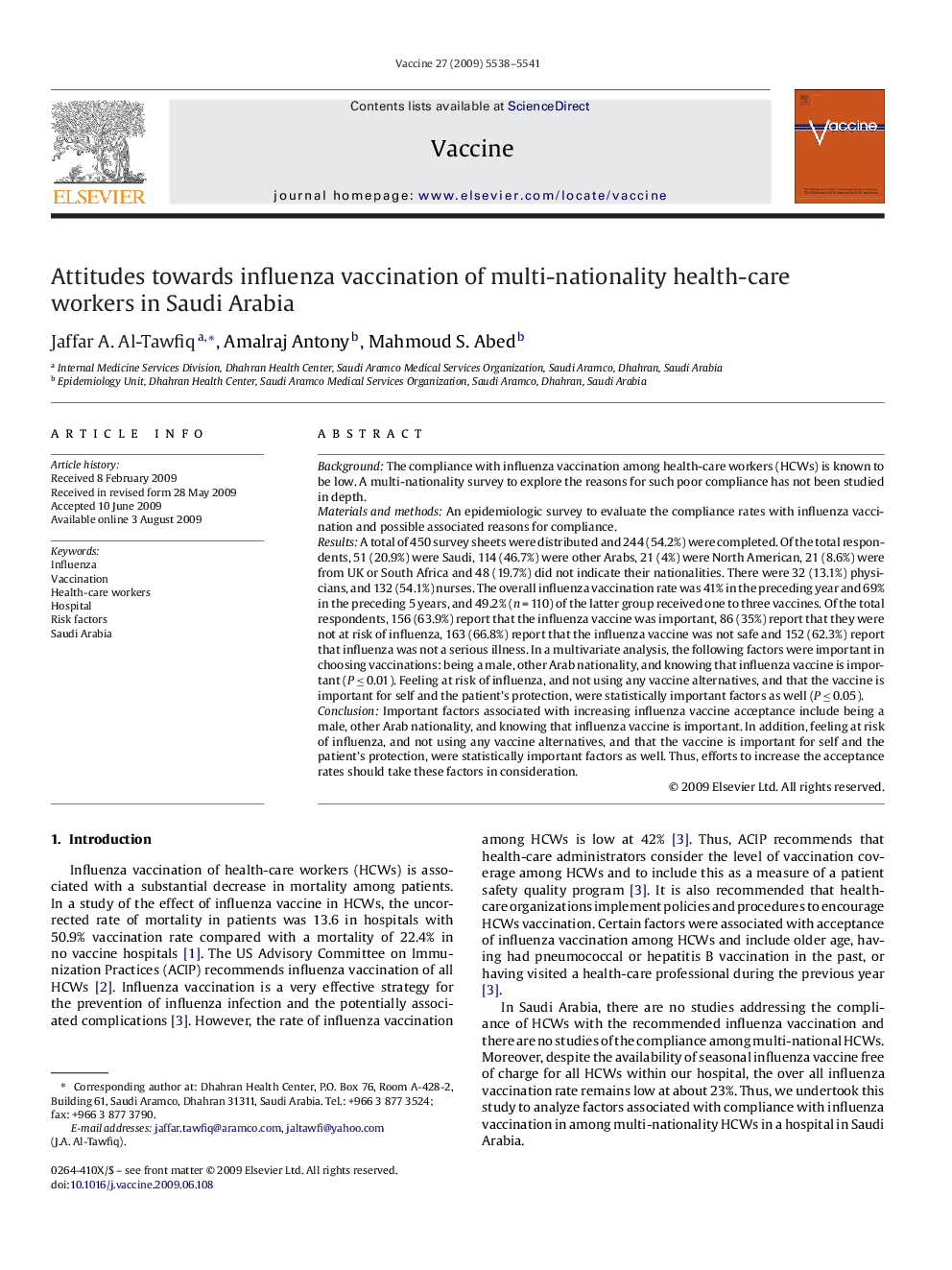| کد مقاله | کد نشریه | سال انتشار | مقاله انگلیسی | نسخه تمام متن |
|---|---|---|---|---|
| 2405478 | 1103035 | 2009 | 4 صفحه PDF | دانلود رایگان |

BackgroundThe compliance with influenza vaccination among health-care workers (HCWs) is known to be low. A multi-nationality survey to explore the reasons for such poor compliance has not been studied in depth.Materials and methodsAn epidemiologic survey to evaluate the compliance rates with influenza vaccination and possible associated reasons for compliance.ResultsA total of 450 survey sheets were distributed and 244 (54.2%) were completed. Of the total respondents, 51 (20.9%) were Saudi, 114 (46.7%) were other Arabs, 21 (4%) were North American, 21 (8.6%) were from UK or South Africa and 48 (19.7%) did not indicate their nationalities. There were 32 (13.1%) physicians, and 132 (54.1%) nurses. The overall influenza vaccination rate was 41% in the preceding year and 69% in the preceding 5 years, and 49.2% (n = 110) of the latter group received one to three vaccines. Of the total respondents, 156 (63.9%) report that the influenza vaccine was important, 86 (35%) report that they were not at risk of influenza, 163 (66.8%) report that the influenza vaccine was not safe and 152 (62.3%) report that influenza was not a serious illness. In a multivariate analysis, the following factors were important in choosing vaccinations: being a male, other Arab nationality, and knowing that influenza vaccine is important (P ≤ 0.01). Feeling at risk of influenza, and not using any vaccine alternatives, and that the vaccine is important for self and the patient's protection, were statistically important factors as well (P ≤ 0.05).ConclusionImportant factors associated with increasing influenza vaccine acceptance include being a male, other Arab nationality, and knowing that influenza vaccine is important. In addition, feeling at risk of influenza, and not using any vaccine alternatives, and that the vaccine is important for self and the patient's protection, were statistically important factors as well. Thus, efforts to increase the acceptance rates should take these factors in consideration.
Journal: Vaccine - Volume 27, Issue 40, 4 September 2009, Pages 5538–5541